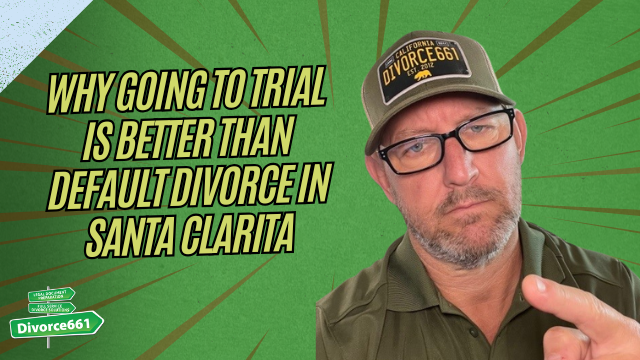How to Deal with a Contested Divorce in California
If you and your spouse cannot agree on custody, property division, or support, you are facing a contested divorce. In California, and especially in Los Angeles, contested cases are complex, time consuming, and often costly. Understanding the process will help you stay prepared, reduce surprise, and make strategic decisions that protect your financial and emotional well-being.
Overview: What Makes a Divorce Contested?
A divorce becomes contested when one spouse files the petition and the other spouse responds but disagrees on one or more key issues. Typical contested issues include:
- Child custody and visitation
- Division of assets and debts
- Spousal support and child support
Once those disagreements are on the table, the court will ultimately be asked to decide if the parties cannot settle the disputes themselves.
Step-by-Step: The Contested Divorce Process
1. Filing the Petition and Service
The process begins when one spouse files a petition for dissolution of marriage and serves it on the other spouse. The respondent then files a response. If the response disputes one or more important issues, the case is officially contested.
2. Financial Disclosures and Temporary Orders
California requires both parties to exchange full and complete financial information. This disclosure is essential because it frames settlement negotiations and court decisions. While the case is pending, the court may issue temporary orders regarding custody, child support, spousal support, or who pays certain bills.
3. Discovery: Exchanging Evidence
Discovery is the formal process of collecting and exchanging evidence. Typical discovery tools include:
- Interrogatories (written questions)
- Requests for production of documents (bank records, tax returns, etc.)
- Requests for admissions
- Depositions (formal sworn testimony)
During discovery you may also exchange custody evaluations, financial expert reports, appraisals, and other expert findings. Discovery can be one of the most time consuming and costly phases of a contested case.
4. Mediation and Settlement Conferences
California courts typically require parties to attempt mediation or attend settlement conferences before going to trial. Mediation is a private, less adversarial process where a neutral mediator helps the parties negotiate. It is encouraged because it can reduce conflict, save money, and produce outcomes tailored to both parties’ needs.
5. Trial
If mediation and settlement efforts fail, the case proceeds to trial. At trial each side presents evidence, calls witnesses, and argues legal positions. The judge then makes binding decisions on contested issues. Trials can be lengthy and expensive, and in busy jurisdictions like Los Angeles they can add months or even years to the overall timeline.
Costs and Timeline: What to Expect
Contested divorces in Los Angeles often cost tens of thousands of dollars, especially when attorneys, expert witnesses, and aggressive litigation strategies are involved. The filing fee by itself is roughly $435 at the outset. Beyond filing fees, costs accumulate from attorney fees, discovery costs, expert reports, mediation fees, and court appearances.
Timelines vary. Some contested matters resolve in a few months, but many drag on for a year or more. In Los Angeles, court schedules and busy calendars can extend the process significantly.
Practical Tips to Manage a Contested Divorce
While every case is unique, these practical steps help you stay organized and make better decisions throughout the process:
- Gather and organize financial documents early: tax returns, pay stubs, bank statements, retirement account statements, mortgage and loan documents, credit card statements, and business records.
- Keep a log of parenting exchanges, important dates, and communications with your spouse.
- Be ready for discovery: preserve documents and avoid deleting electronic records that could be requested.
- Prepare for mediation: know your priorities, your realistic bottom line, and the areas where you can compromise.
- Consider cost-benefit before pursuing prolonged litigation. Ask whether each dispute is worth the time and money to litigate.
How We Help
At Divorce661 we guide clients through each stage of a contested divorce. Our services include:
- Responding to petitions and organizing financial disclosures
- Managing discovery and preparing documents
- Coordinating custody evaluations and financial expert reports
- Preparing clients for mediation and settlement conferences
- Strategizing whether to settle or proceed to trial to protect your interests and manage costs
Our goal is to reduce conflict, save time, and protect your financial and emotional well-being throughout the process.
Final Thoughts and Next Steps
Contested divorces are challenging, but you do not have to navigate them alone. Understanding the steps—filing, disclosures, discovery, mediation, and possibly trial—helps you stay in control and make informed decisions. If you are facing a contested divorce in Los Angeles and want help managing the process, visit divorce661.com and schedule a free consultation. We will help you make strategic decisions, manage costs, and pursue the best outcome, whether through settlement or a court decision.
“Our goal is to reduce conflict, save time, and protect your financial and emotional well-being.”




